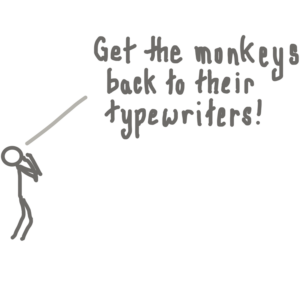72 Hours in Mumbai
The first thing I noticed when stepping beyond the doors of the airport terminal in Mumbai was a potent cocktail of vehicle exhaust, human feces and burning garbage. The haze that I'd mistaken for fog outside the airplane window hung in the air everywhere, obscuring the far edges of the taxi bay and bringing tears to my eyes. The humidity lay thick in the air.
I stumbled over to the designated vehicle, handed the prepay slip to the driver and hunched down to fit myself and my backpack into the little taxi. Noticing the buckle but not a strap, I reached back to fumble with where the seat belt should be. The driver's "no-no-no-no" was the only English he would speak for the whole trip as he motioned that I shouldn't try to dig for it behind the seat.
Even at 6am, there were cars all over the roads. Pulling onto the highway, we merged into the thick soup of traffic with no look but a loud honk that raised my blood pressure. I got another start when, looking ahead for some landmarks to indicate I was on the right track, a ragged group of children emerged from the shacks by the side of the road and raced across 6 lanes straight through the middle of traffic.
Shellshocked and exhausted from the 24 hour journey, I stared down the tunnel of the road, ringed on both sides by mounds of garbage and occluded by pollution in the air. I clutched my motorcycle helmet and had two simultaneous thoughts: "oh my god, I actually have to ride a bike in this?" and, more strongly, "I hate this place, get me the hell out of here as fast as possible!"
Mumbai, like most Indian cities, is heavily polluted. Despite this, and while India has the dubious distinction of owning 10 of the top 20 most polluted cities in the world, Mumbai is actually not even in the top 100. But it is a considerable shock for someone who has lived almost entirely in the first world to step into an environment where there is clearly no functioning garbage collection infrastructure so people habitually just throw their rubbish at the side of the nearest road and where the sewage infrastructure is woefully inadequate.
Luckily, we found the hotel and I was finally able to plug in my dying phone and gain access to wifi. It's surprising how distressing the lack of connectivity (through poor SIM card planning) can be in such a digital world. One exquisite shower later, I was able to get in touch with a friend and met him for lunch. First, though, he generously took me to the phone store and helped me manage the queue, the team and the bureaucratic nightmare of having to get a SIM card. Definitely the best use of his law degree.
Bureaucracy is one of the most common themes of life traveling through India. It took an absurdly long time just to get a SIM card (we ultimately had to put it on the friend's existing account) but that's par for the course. To do anything related to technology, hospitality or transportation, you will likely be required to register on multiple poorly built websites with conflicting asks and inaccurate validations. Or maybe you'll be sent back and forth to multiple locations with an infinite loop of asks.
Basically, imagine what would happen if the most tortuous elements of the DMV owned 10x their normal functions and you're on the right track. The overlapping layers of this obviously stalls any kind of forward momentum for most tasks so you have to simply breathe deep and learn how to navigate using actual people, who know the hacks to get things done.
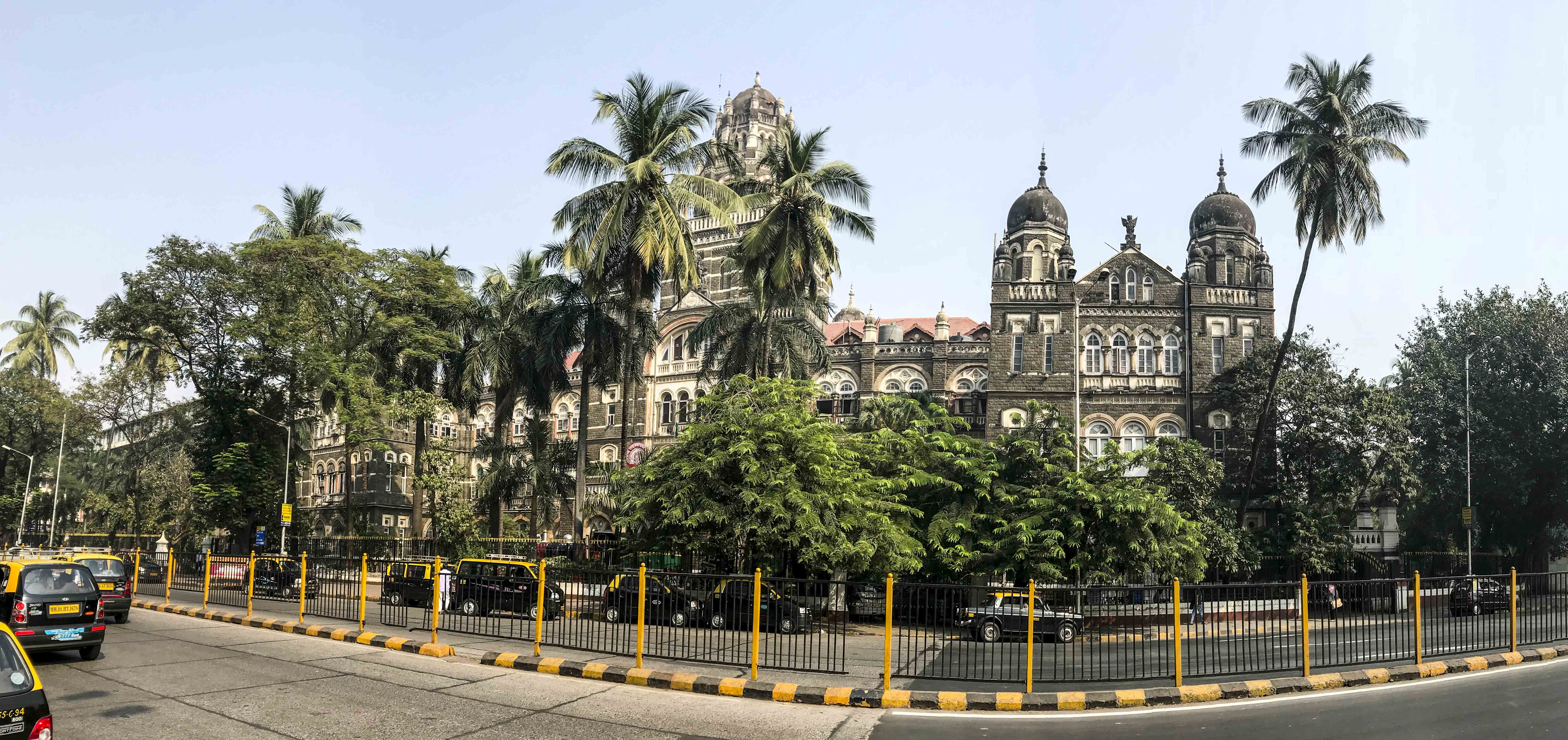
And then… the food. The first of many meals was a mouth-meltingly delicious mixture of all sorts of foods I'd never experienced before. I came in loving Indian food but getting the real thing provided both a variety and a depth of flavor that I had never experienced before. We had idly (soft rice patties), medu (lentil donuts), masala dosa, a variety of chutneys and a host of curries that I can't remember. I ate beyond satiety and still wanted more.
Food in India is primarily eaten with your hands. They occasionally provide cutlery for westerners but natives use their right hand (the left is unsanitary) to dive right into the rice and curry in front of them. It's a messy affair but one born of practicality. After the meal, you go to the hand washing station by the restroom to clean up. They typically do not provide napkins.
Re-energized, I went for a walkabout in the city to get a feel for it. My previous observations on the pollution held true even in the wealthy core — the air was a thick pall of exhaust and garbage (especially plastic waste) lined every open space, including covering the cricket fields in the middle of the parks. The oldest buildings are grand, built out of stone with detailed facades that were adorned with creeping vines and heavily dulled to a smudge gray by the pollution.
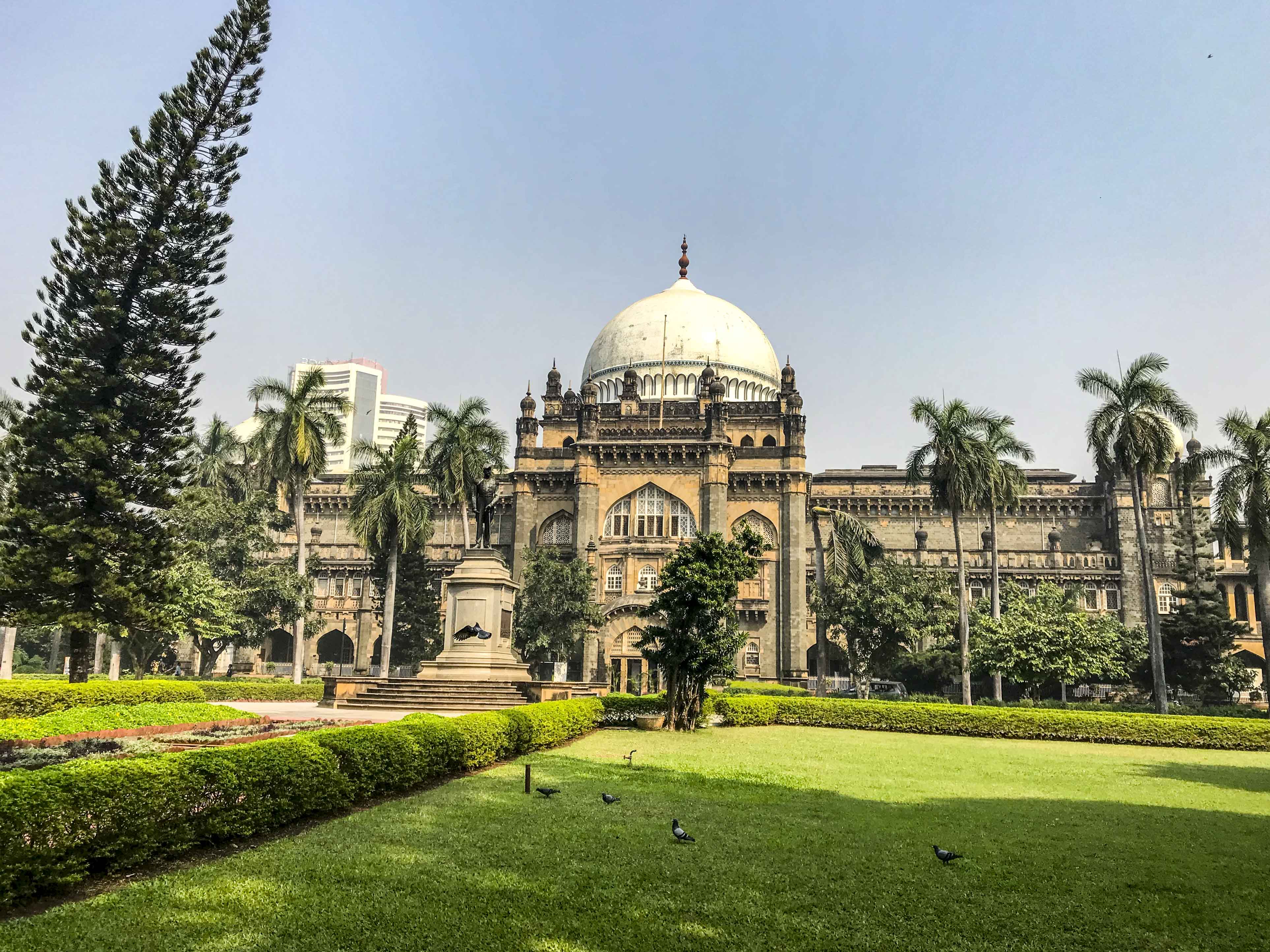
The other major element was the people. They were absolutely everywhere, filling the sidewalks and crowding the streets. And, needless to say, I stood out.
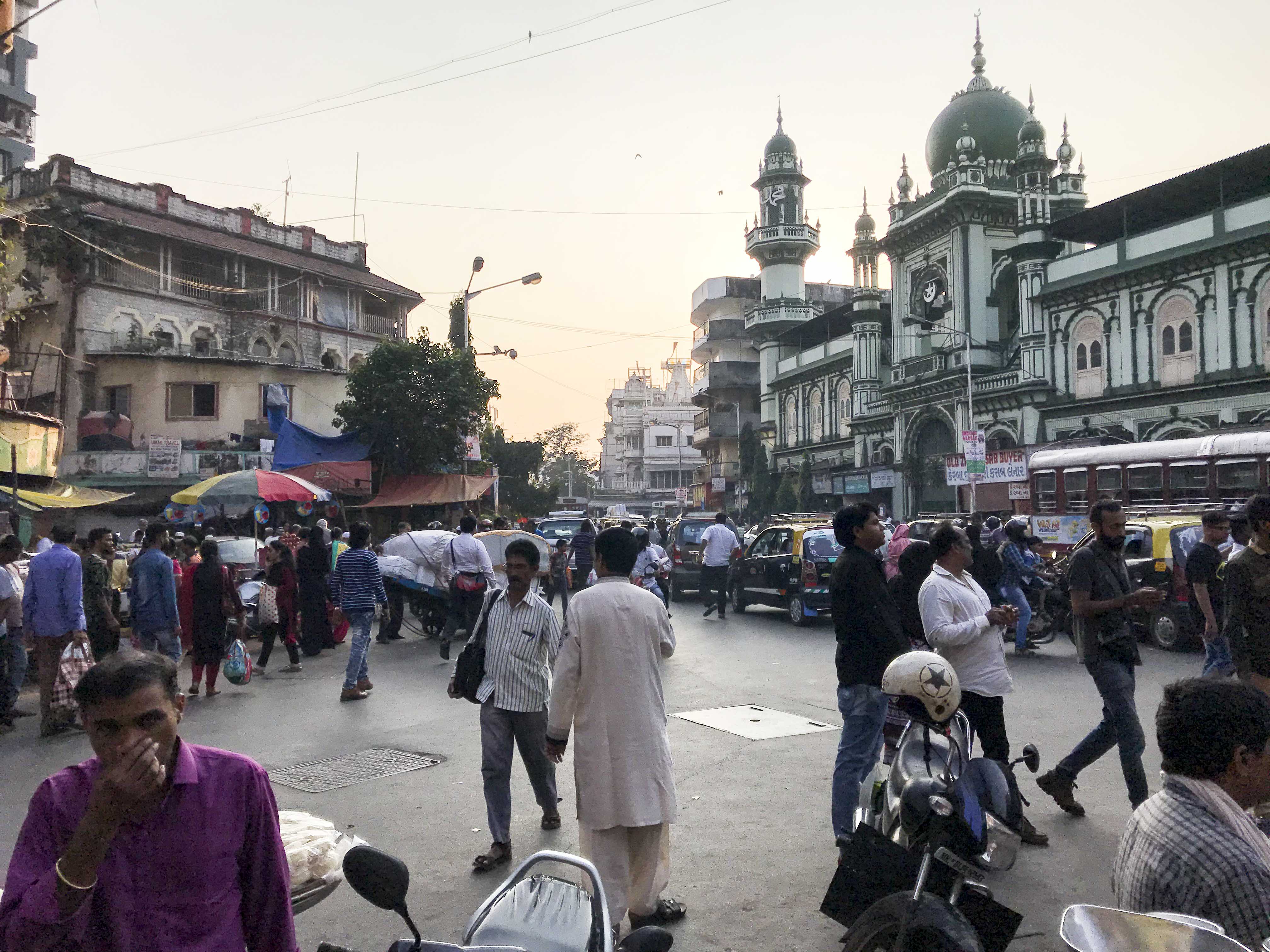
I'm used to standing out when I travel and it's typically a sort of quiet observation and a few double-takes that I catch out of the corner of my eye. In Mumbai, it was very direct. The first time someone stopped, shook my had and asked "where you from?" I was kind of tickled by the genuine nature of it. The second time I got kind of confused and the twelfth time I just wanted it to stop. I learned that one of the most international words was "selfie?" and that anyone hailing you as "my friend" will definitely sell you something. I got this treatment everywhere I went.
Even in the more international cities, there is a strong curiosity about white people and foreigners. I could sense the exceptionalism of my presence in both the on-street interactions and the way I was treated by figures of authority throughout the country. It definitely felt like being a movie star, with all the positives and negatives associated with it. There was both a strong curiosity among most of the people and also, from some elements, a clear targeting for profit.
I could see the faces of the other tourists peering down from the hoods of the tuktuk taxis or plastered against the glass of passing cars but very few of them stepped onto the street, content as they were to travel from one bubble to another without genuine interaction.
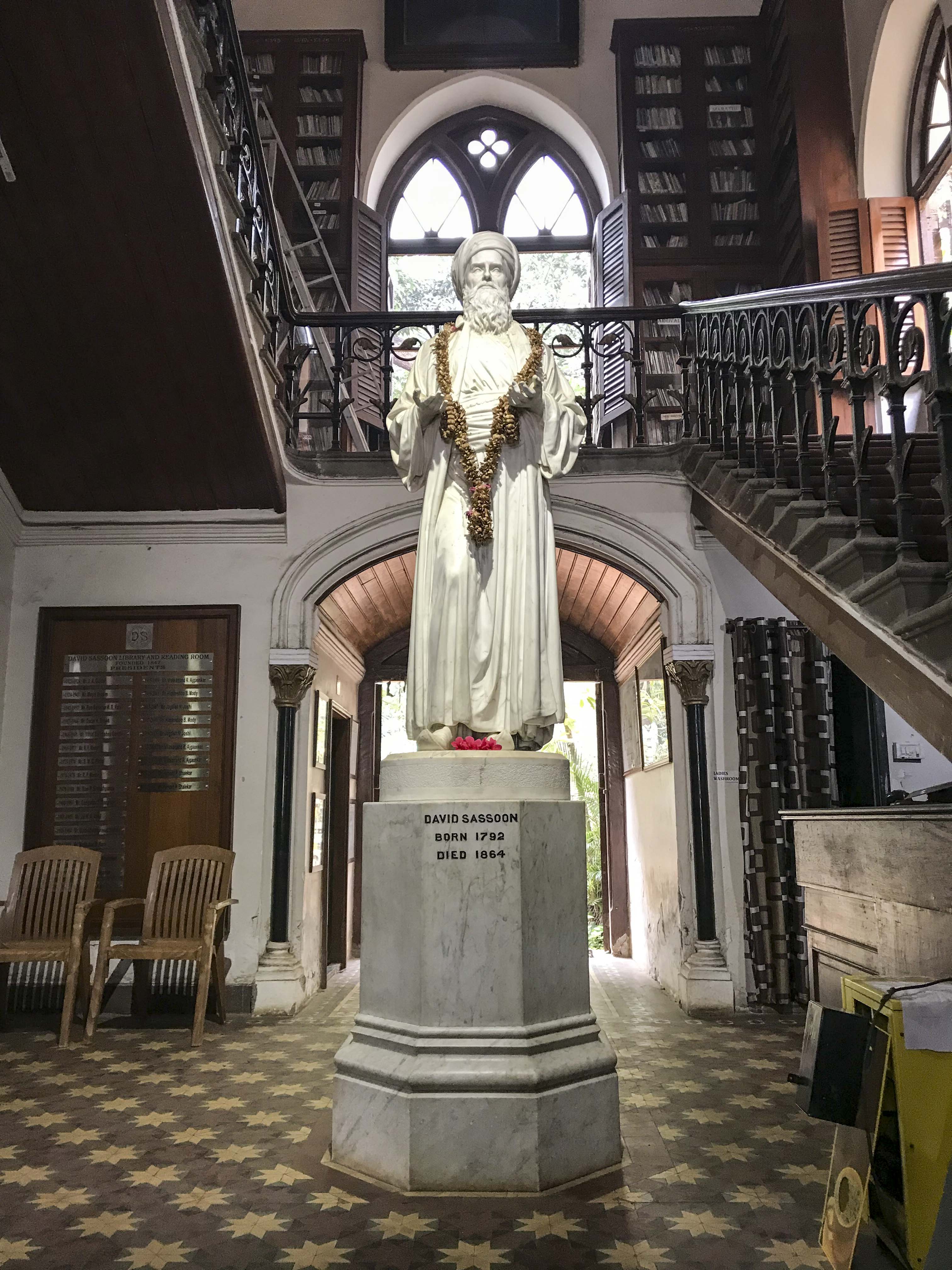
When I returned to the hotel just after sunset, I crashed and slept for 14 glorious hours. Turns out, that's the secret to beating jet lag.
Even high in a hotel, I could hear the sounds of honking filtering up through the closed window. The noise of the city is everywhere but especially the honking. In many cultures, honking is reserved for only the most exquisite moments of rage. In Indian culture, it is simple communication. Every vehicle honks when overtaking another vehicle to let them know where they are. They honk when coming up to an intersection (which is a special form of chaos) to let other cars know they aren't stopping. They honk when they see pedestrians eyeing a crosswalk and they honk when… they just want to, I suppose. As someone who has been trained to treat honking as a sign of anger or danger, it was incredibly anxiety-inducing for the first several weeks to be immersed in this new soundscape.
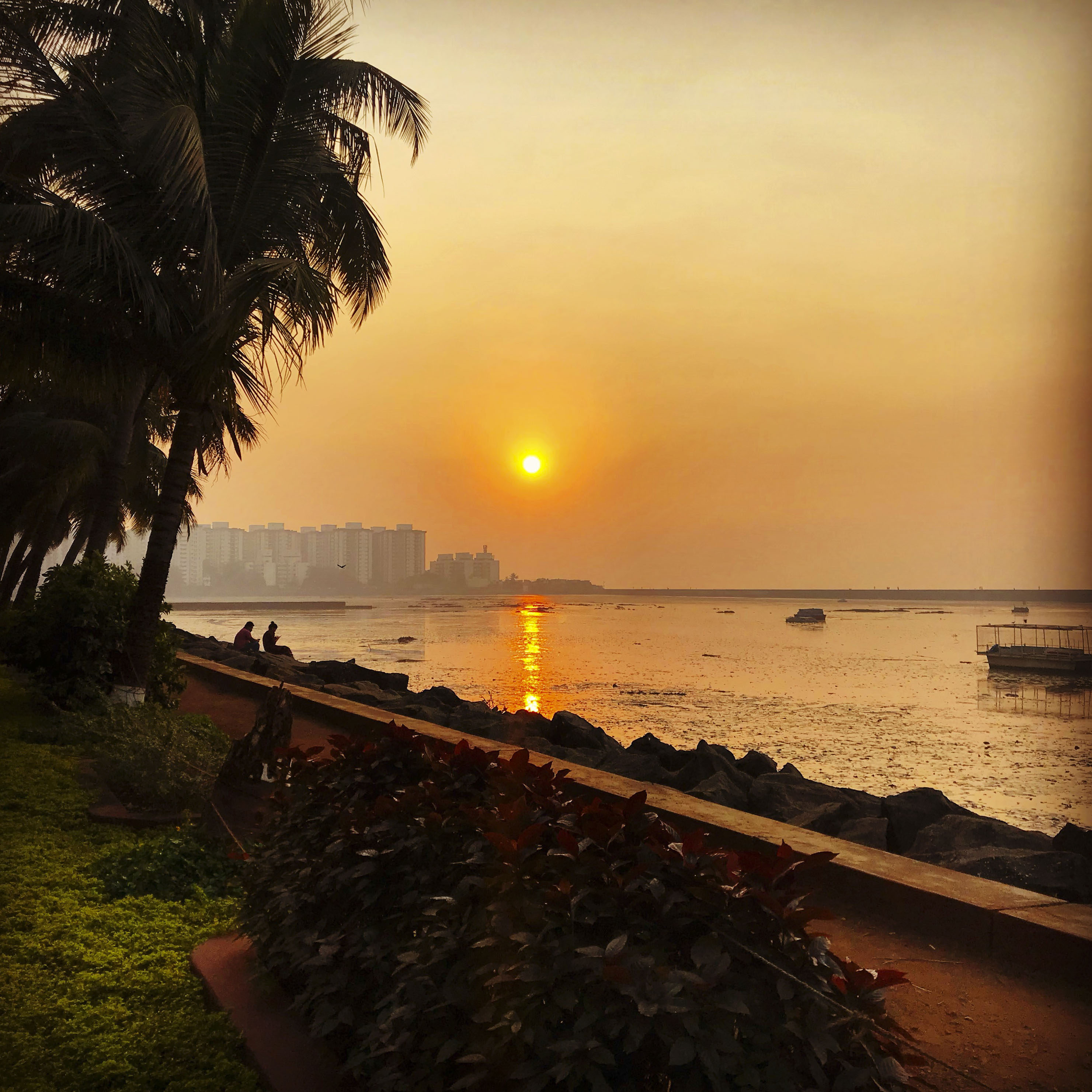
The next day, I had the best chicken Tikka Masala (personal favorite) of my life for lunch and couldn't wait to get hungry again for the next meal. Food was quickly becoming one of the best parts of the whole experience.
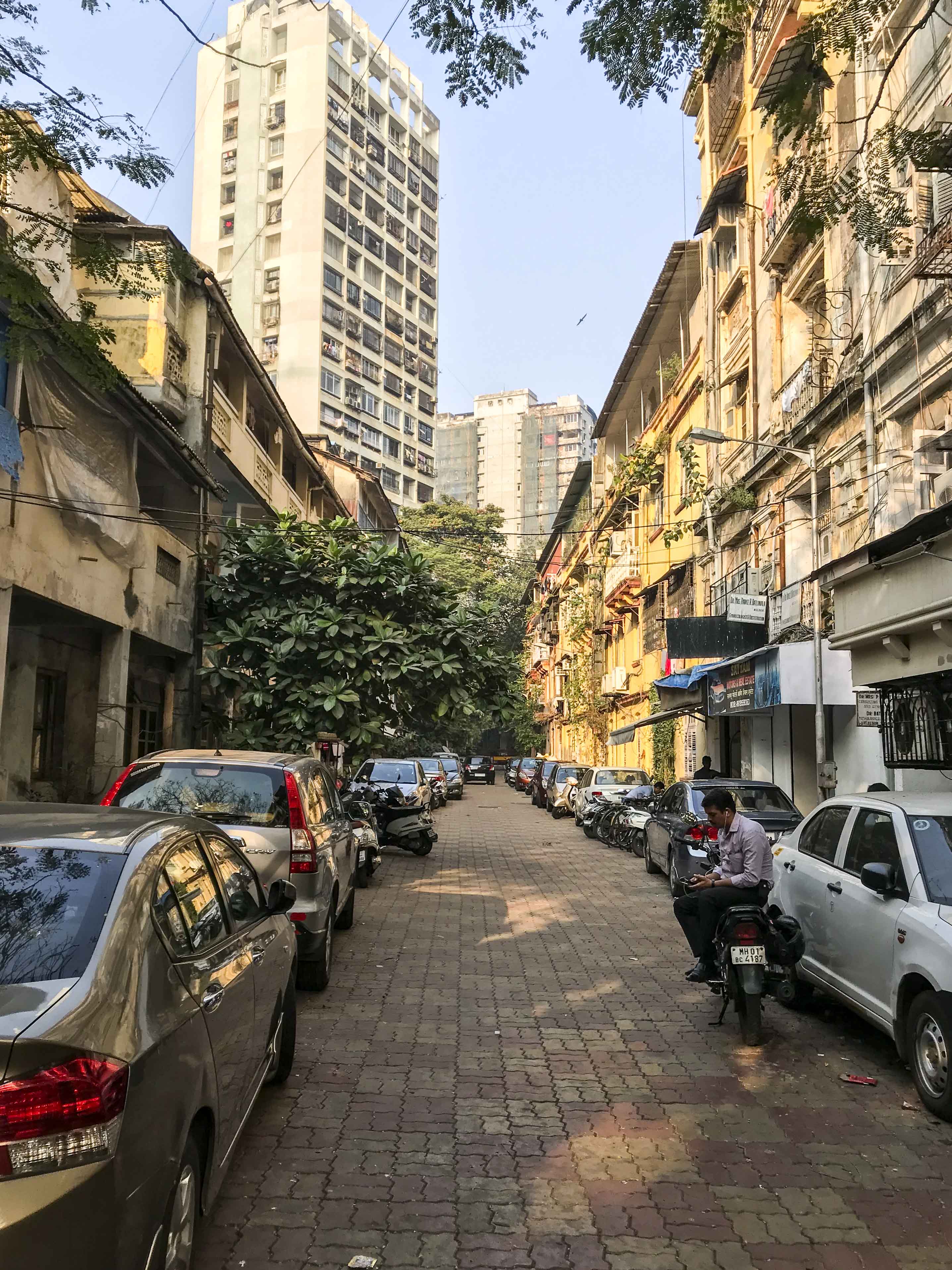
I met a friend of a friend, an entrepreneur who recently exited his business, for coffee and a ride to his family's home on the other side of the city. It was good to connect to someone with familiar thoughts and ideas amidst such a foreign culture and it was also good to bandy about some of the swirling thoughts I was having on my own about life in between businesses. He was brave enough to own a car, so I got the inside perspective on driving through the chaos.
While the streets are noisy, the drivers in Mumbai are the best I've ever seen across the world. Accepting that the system of which they are a part is a total free-for-all, they have the technical driving skills of the best professional racers. The cars pack so tightly and pass so closely together that it's clear they know the dimensions of their vehicles to within a millimeter and execute with impressive gusto.
Still, I was particularly startled by the operation of intersections, where even in the big city there were often no streetlights where two large avenues met. Instead, traffic kind of honked and shuffled its way through a complex zipper maneuver that left me white-knuckled and wide-eyed every time.
Dinner was another phenomenal meal but it started with the search for a bathroom. When I asked, the restaurant staff conferred with each other and the youngest one was sent to guide me. He led me out the front door, around the corner, into an alley, past several homes with laundry strung across the corridor and finally to a little hole in the ground that was their urinal.
After finishing, I looked around for a faucet and made the hand-washing gesture. After a confused moment (I later discovered that this is dangerously close to what they perceive as a signaling gesture used by transsexuals), he led me back through another set of alleys and under a doorway where there was a single tap filling a laundry bucket, pointing triumphantly.
Hygiene is a different world but has its own logic. Paper products and functioning plumbing are generally nonexistant so bathrooms are typically squat toilets (just a hole in the ground with places on either side to plant your feet) and typically have a bucket which you are meant to use to splash up and clean yourself (with your left hand). Hand-washing seems to generally take place only after meals, which struck me as very strange.
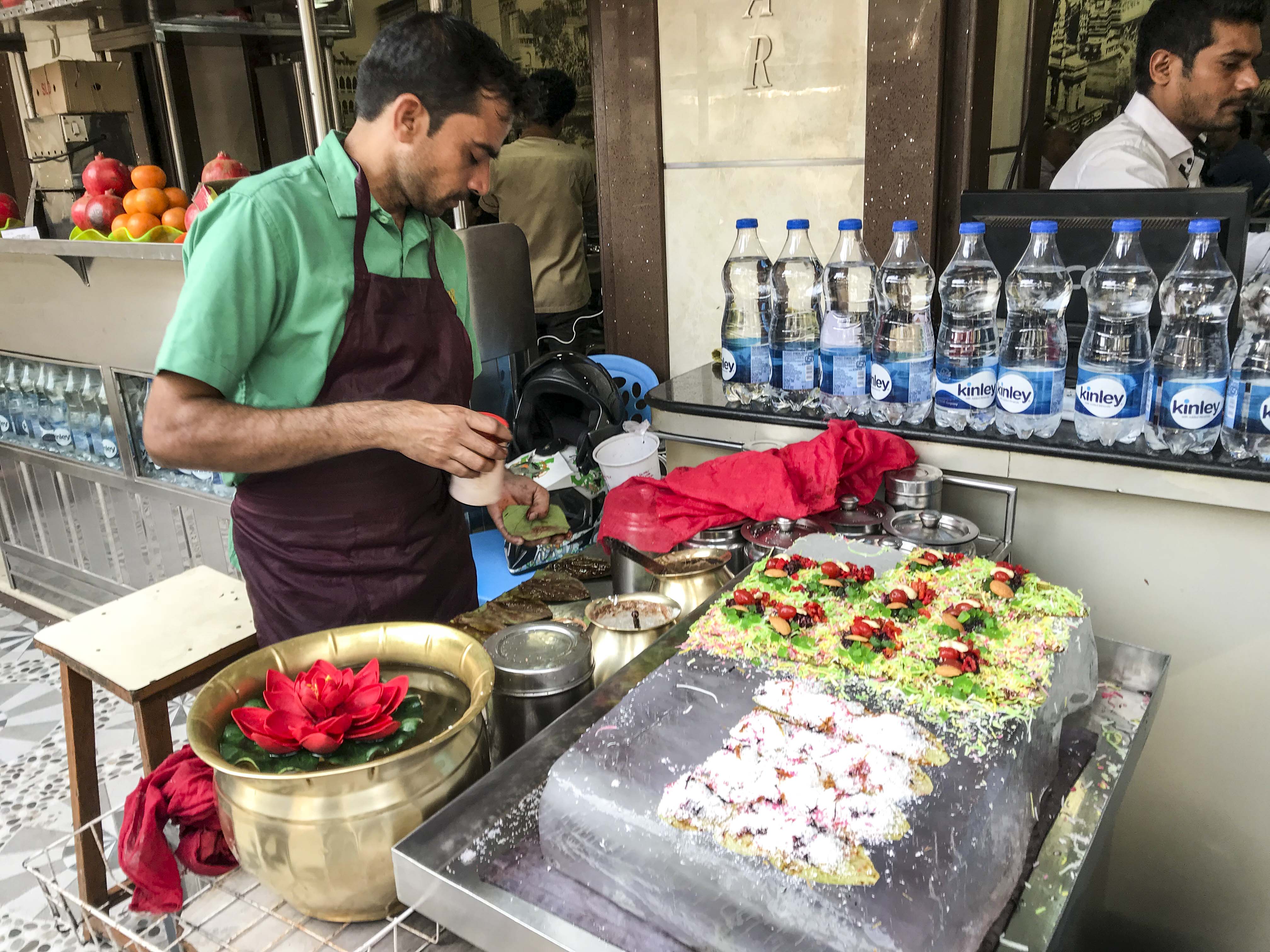
On Friday, I decided to explore the city and went for a long walk. I was walking with a coconut in one hand and a straw in my mouth when I bumped into another westerner. We quickly fell in together and engaged in a deep conversation about the pros and cons of Eastern religious thought and life purpose. A former drug addict, he had become clean during his travels and was searching for his next step in life.
"Preparing for the next step" is a common theme among travelers and I'm hardly immune from that but an exploration of purpose is rarer to find among the backpacker crowd. I've been thinking about the idea of "purpose" a lot lately and how it all circles back to the self, which has led me into a fascinating exploration of Hinduism, Jainism and Buddhism. There are no easy answers but it's useful to get a diverse spectrum of thought around what are, fundamentally, universal questions.
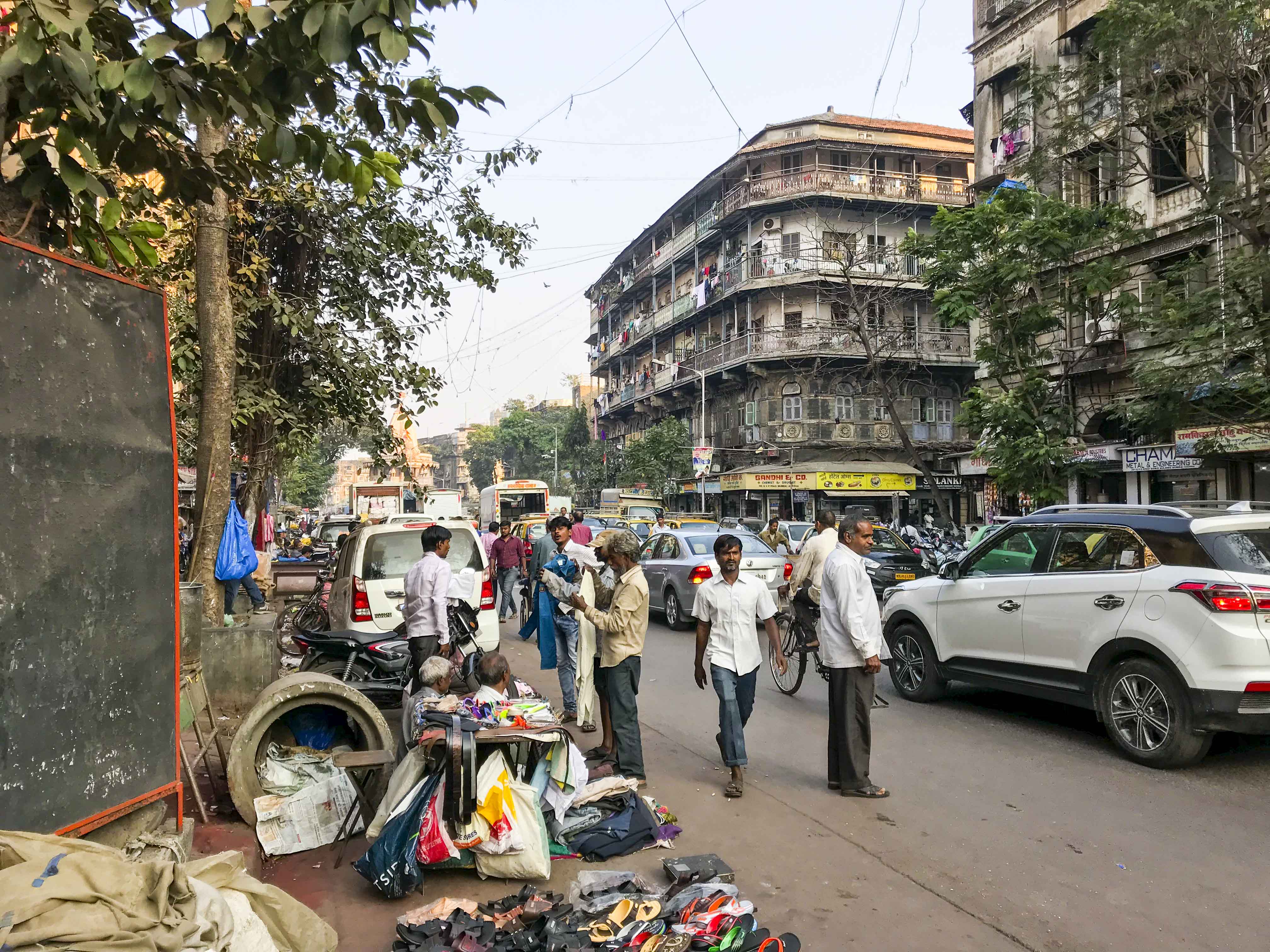
Along our journeys, we were approached by an enthusiastic Indian man who jumped into our conversation. At this point, I was used to a strong cultural difference in what constitutes considerate dialog and personal space but he was particularly insistent on circling the conversation back to his questions about us. Annoyed at first, I ended up unable to hold onto the feeling when his story came out.
He was a successful businessman in his local village and the only person to leave and travel. This was his first time in Mumbai and he was expected to have many experiences and relay them back to the members of his village. Several dozen selfies later, we thanked him and went our separate ways.
To Indian tourists, I was often more interesting than whatever attraction we were visiting and that interaction with the man in Mumbai certainly shed some light on why that is. Many of them have never seen a white person before and certainly hadn't had a chance to practice English with one. So, in their whole life to date, this was their single chance to do both and it makes perfect sense that they would approach it with both drive and wonder. I still hated doing selfies, but tempered the feeling as best I could.
I visited the Sufi Haji Ali Mosque, a beautiful white complex built out in the Arabian sea and joined to the city by a long causeway. Because it was a Friday, the causeway was thick with pilgrims winding their way out to pay respects. Unfortunately, it was a case study in painful contrast.
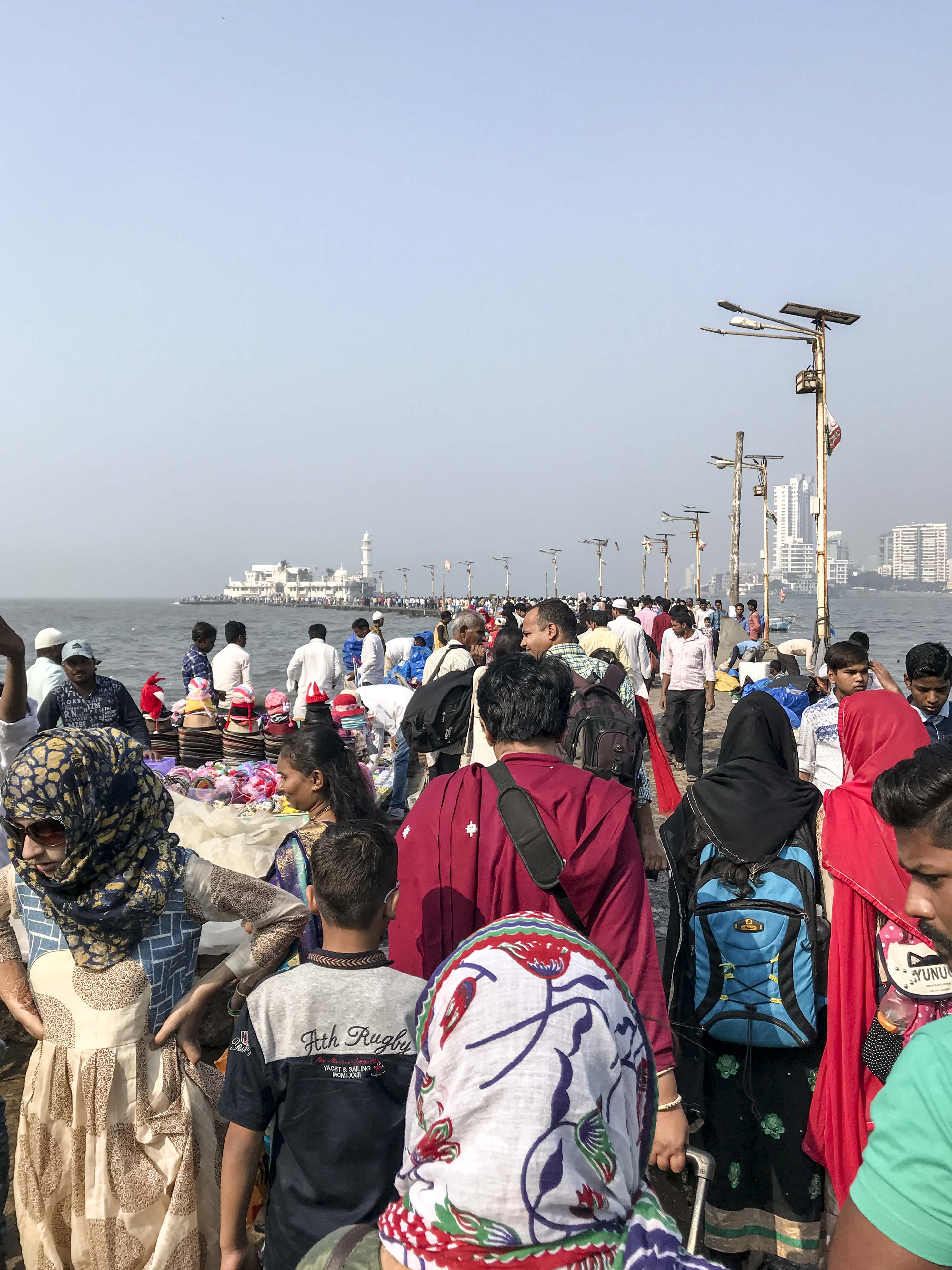
The causeway was lined with beggars, many of whom displayed terrible injuries and deformities as they prostrated themselves in the filthy mud before the shuffling masses. While the inside was beautiful and surprisingly peaceful given the flow of people, it was a challenging experience to see such suffering in the same breath.
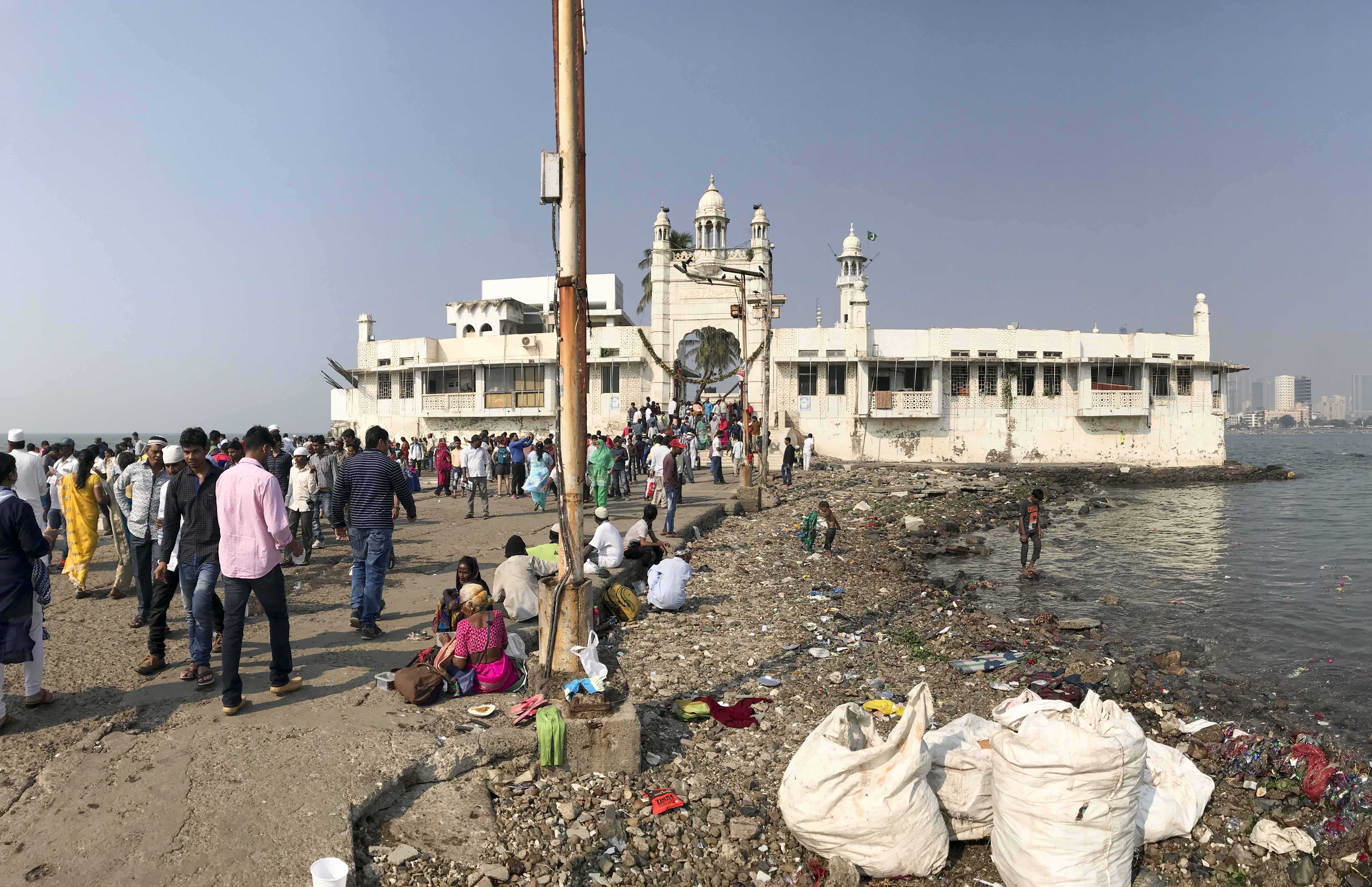
Poverty is one of the undeniable themes of traveling through India. In Mumbai, the contrasts are particularly strong because the suited private car crowd passes within feet of people who are living well below subsistence and are literally wasting away. But everywhere you go, it is apparent from the protruding bones, weathered skin and careful shuffling walk of how difficult life is for many. San Francisco is a city often castigated for the contrast between its wealthy elite and its suffering street population and it was a difficult reflection to see these extremes played out even more severely halfway across the world.
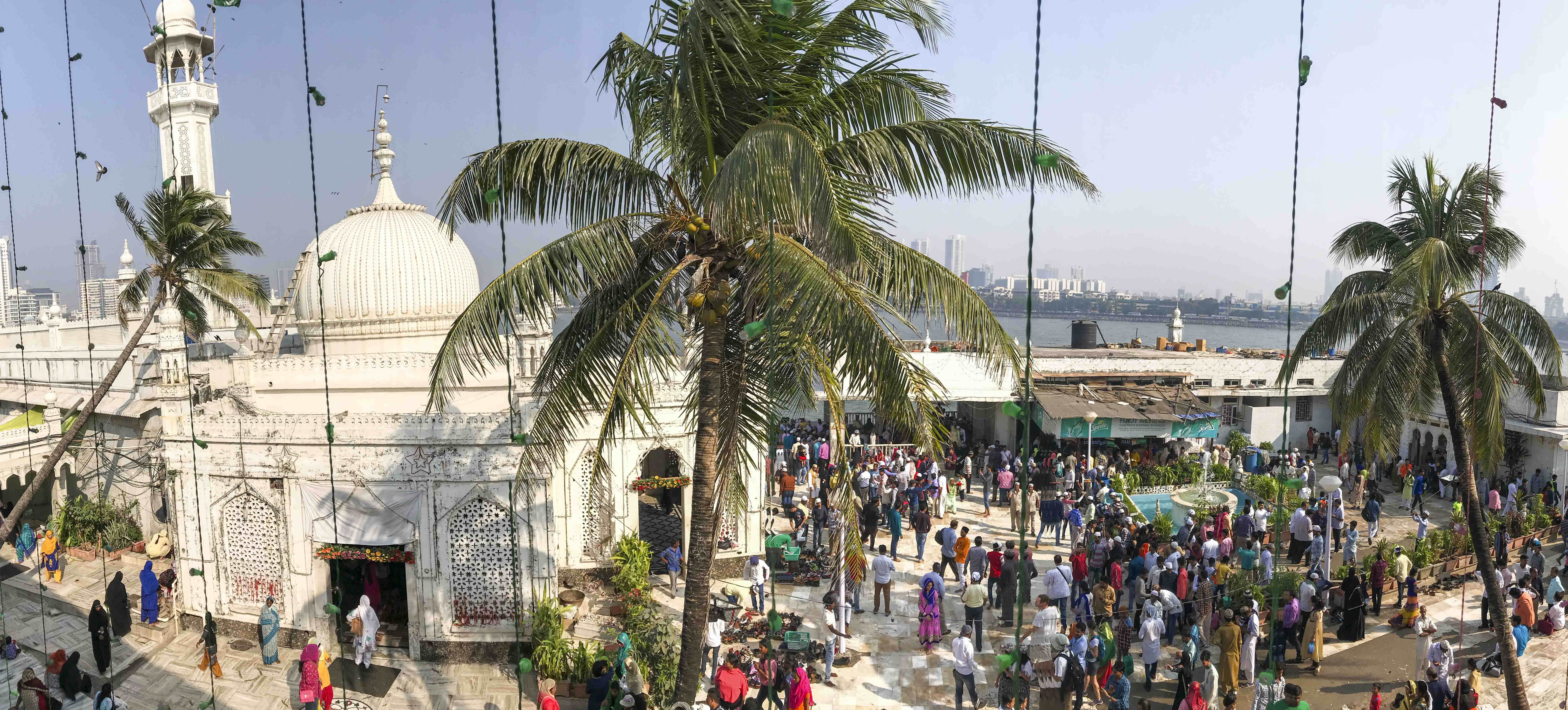
The walk home was as uncomfortable as the causeway had been. I specifically decided to take what looked like a "genuine" route back, and found one on the map which wound for 5 miles through bazaars and overflowing tenements.
The streets were packed with people and animals going every direction. There are laborers working in button-down shirts with hand hoes to slowly dig holes in the street and men pushing carts loaded with iron piping while fighting for space with the tuktuks and buses and bikes that crammed into every edge. Sidewalks were a cruel joke, often capping 10 feet of relatively smooth concrete in a particularly jagged hole designed specifically to punish the unwary pedestrian.
As usual, I stood out and, more than usual, I felt strongly out of place. There were so many people with so little and working so hard that my privilege of choice, my western clothes and nice boots felt almost like an exploitation simply through presence. To combat the feeling, I would duck off the main street and simply observe the flow of people until the unfamiliar became more human and the sense of difference faded.
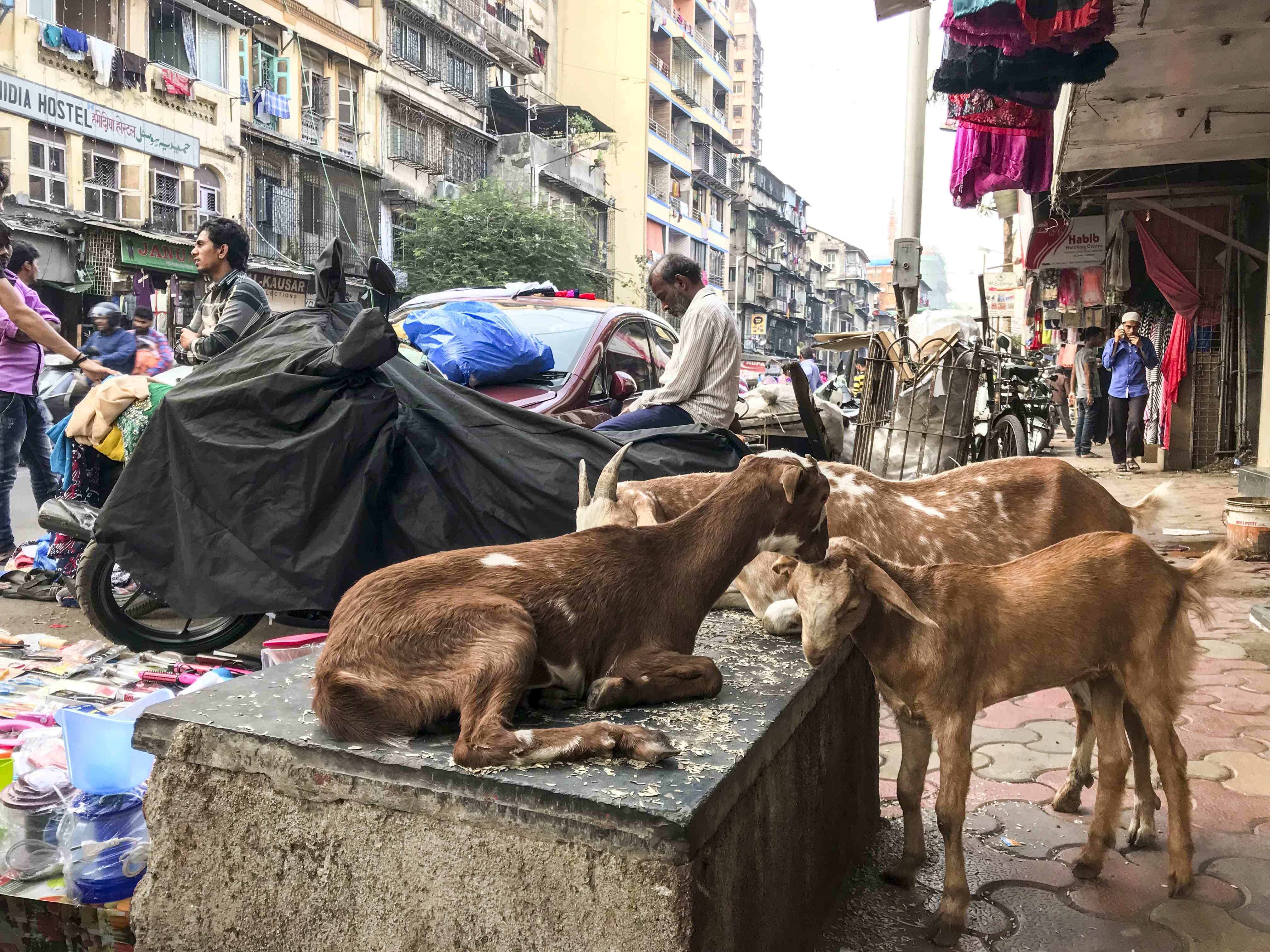
The streets of Mumbai are a full spectrum melange of old and new. There are oxcarts which could have come from centuries ago sharing space with modern Tata trucks. Laborers wear frayed sandals and simple shirts but speak on cell phones as they walk. Old women display a ragtag mix of vegetables across a shawl laid on the sidewalk feet from a bodega with a broad selection of food. Under it all, there is an energy and a feeling of momentum that I haven't experienced anywhere else.
After several days in Mumbai, I was ready to head south and arrived at the train terminal for the night train to Goa. After a long struggle with the bureaucracy, I'd finally booked a "tatkal" ticket the day before, which is where you pay more to get to the front of the queue. All my contacts assured me that tatkal tickets almost always got confirmed so I should just go to the station and get on the train and make it happen.
Turns out that's not quite true. I passed through security by literally walking around it (!), got onto the train and went looking for the "TC" (ticket collector). Turns out, my ticket was not confirmed but I was told in broken English to check in the next compartment down. This repeated several times as the train began to leave the station. Finally, I'd reached the last class and been told in no uncertain terms that there were no beds available. I found myself standing on the platform an hour from the city searching for a return train and wondering where I'd spend the night.
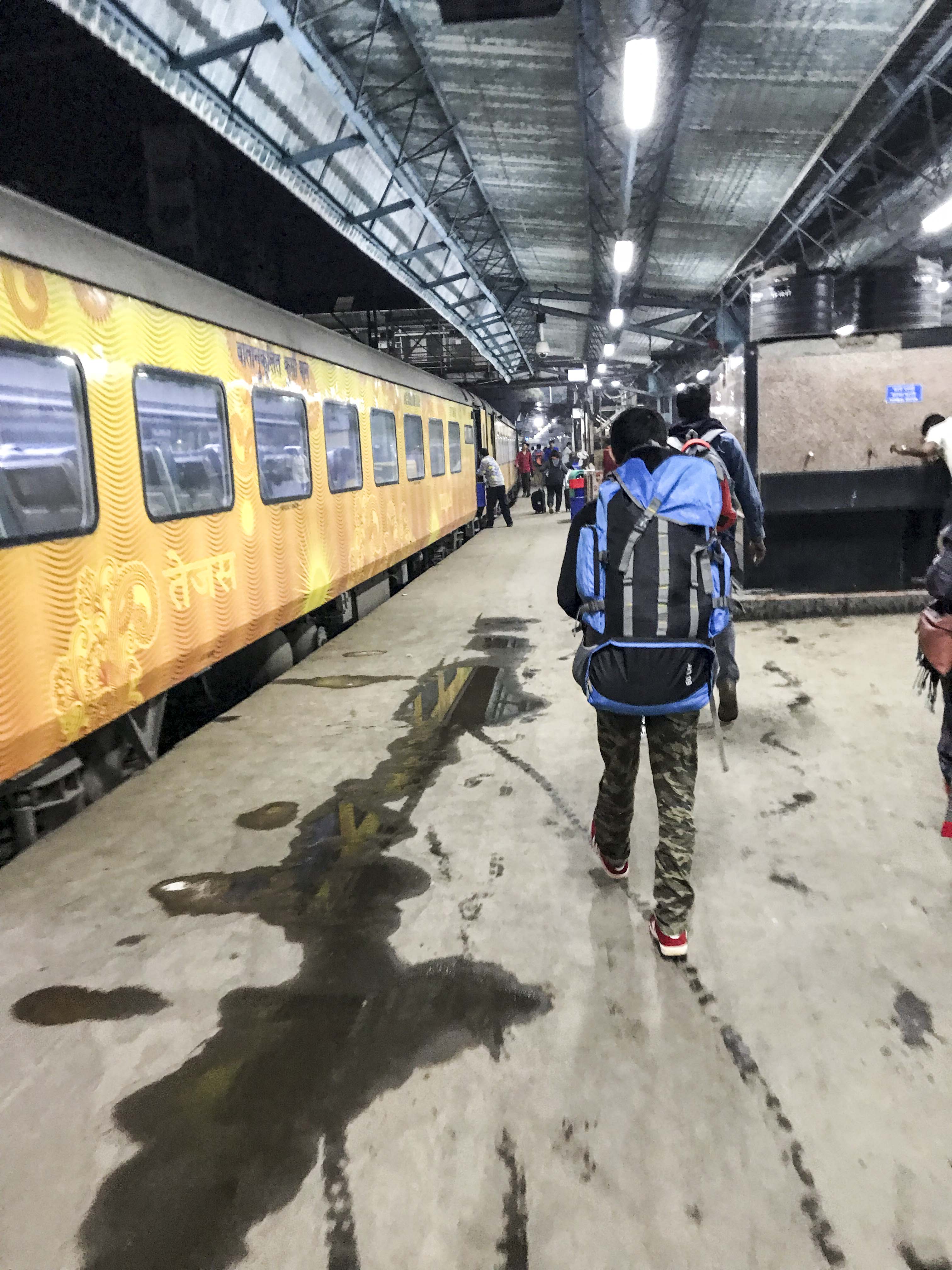
Another often-repeated theme of traveling in India is that your plans will go completely upside down. It doesn't matter how or why, but something is going to happen which derails your intentions and forces you to adapt. For many, that challenge is a feature of traveling in the developing world. For others, it's a horrifying lapse of reliability at crucial times. For me, it simply became a fact of life and I stopped booking accommodations ahead of time because every time I did, I failed to show up.
I spent the night at my friend's house, where he lived with his extended family in a nice place on the Arabian sea. My friend is a highly accomplished professional with almost limitless options but had made a conscious choice to continue living with multiple generations of his family in their home in Mumbai. There was something special about this. His grandmother even complained that when they visit the US, she's expected to just sit at home and not do anything. I couldn't argue.
The default expectation in the US is that children will leave the home for work and/or school and build their own lives. This may be changing as millennials are left with fewer and fewer options but the cultural imprint is still strong. It results in weaker family ties and a greater sense of cultural loneliness.
In India, it is far more common for multiple generations to share a home. Whether a result of simple economics or the intention of a culture built on connection, it has created a strong family structure where generations stay close to and learn from each other in ways that are so rarely present in the US. On the flip side, it no doubt contributes to some of the cultural conservatism which is also a strong feature of the country.
At long last, on Saturday I made my way to the airport and took a last-minute flight to Panjim in Goa. Airport security was surprisingly friendly (we chatted about motorcycling) and the airport itself was downright pleasant. From the taxiway, though, it was impossible to ignore the sight of an endless sea of slums literally leaning against the high walls of the airport itself.
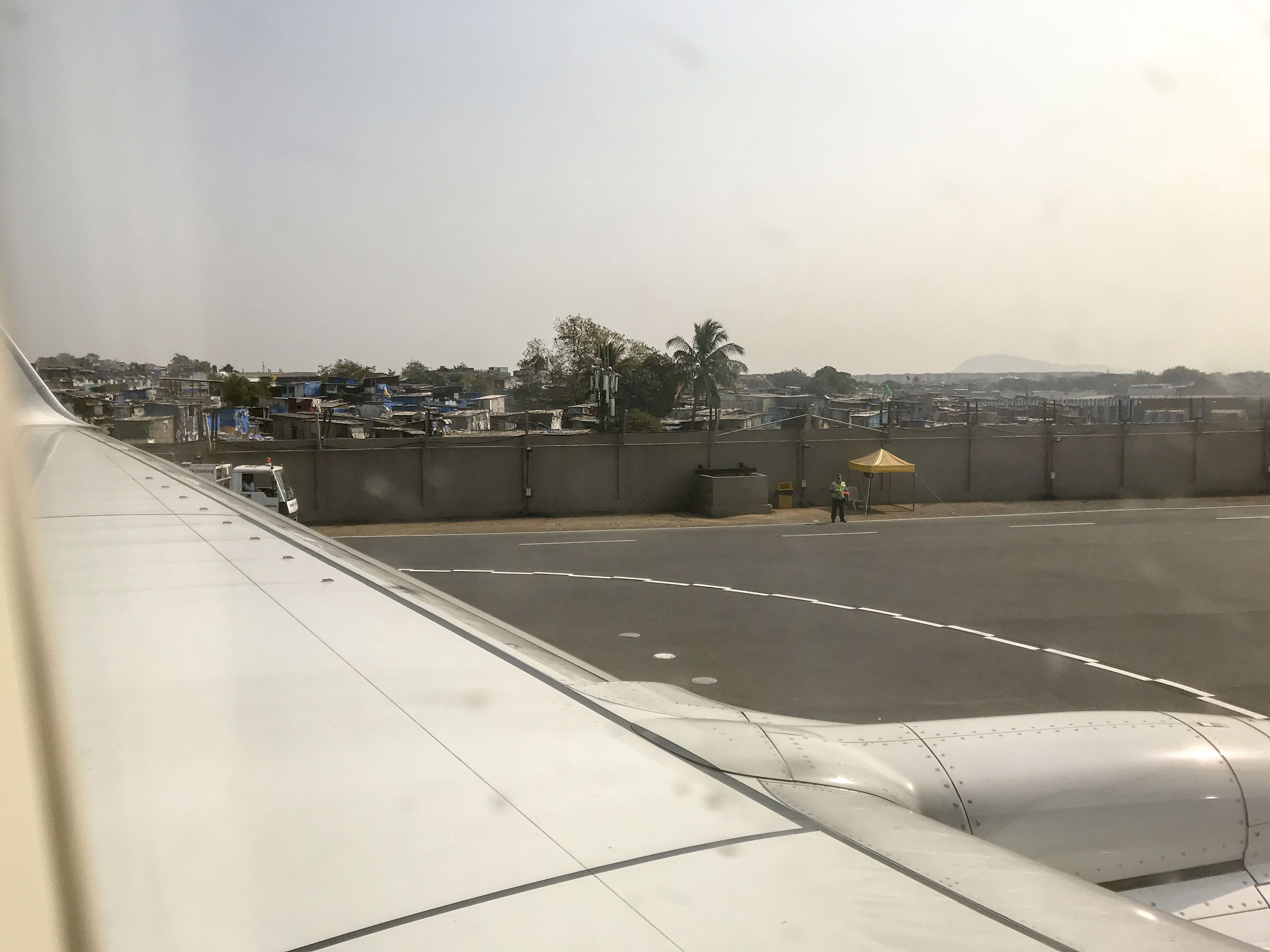
We ascended through the smog and didn't find clear skies until tens of thousands of feet up, where at last the impact of human activity couldn't be seen. Mumbai was, for me, a crash course in both India and the challenges faced by an overcrowded city rapidly ascending through their own difficult growth and seeking something more.
There's no denying how challenging it was to spend even just a few days there but they were also home to some of the most eye-opening experiences of my life. Three days into a month-long trip, I was excited, tired and craving some peace but also supremely grateful for the opportunity to be there.



